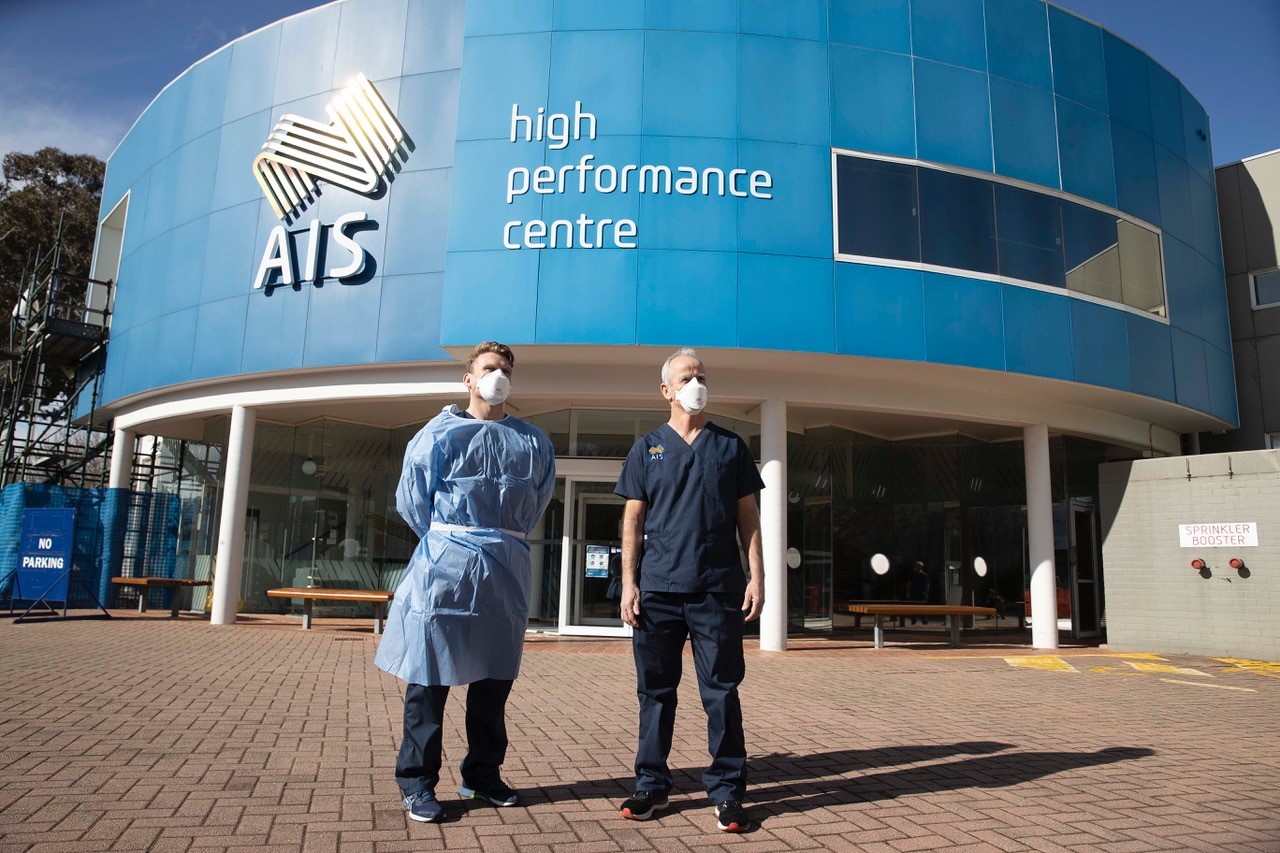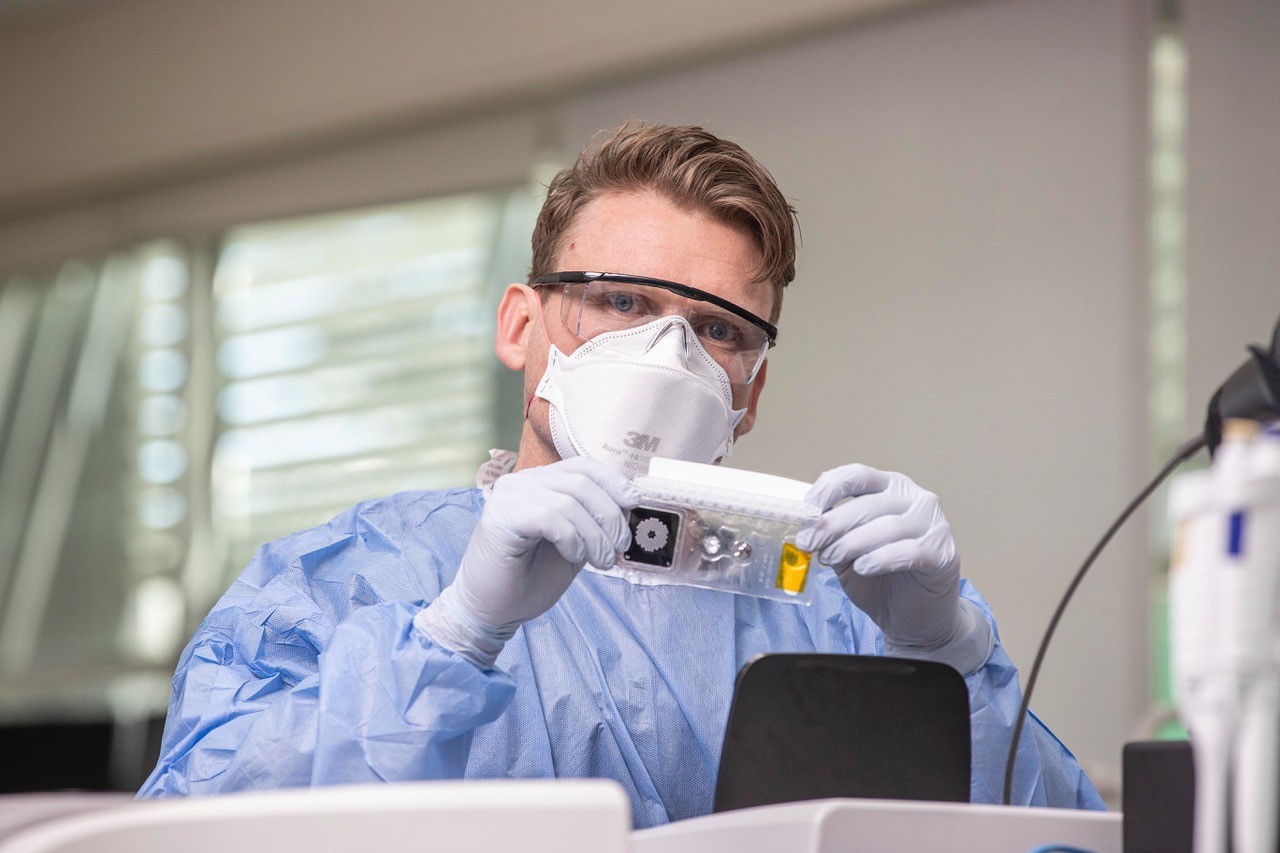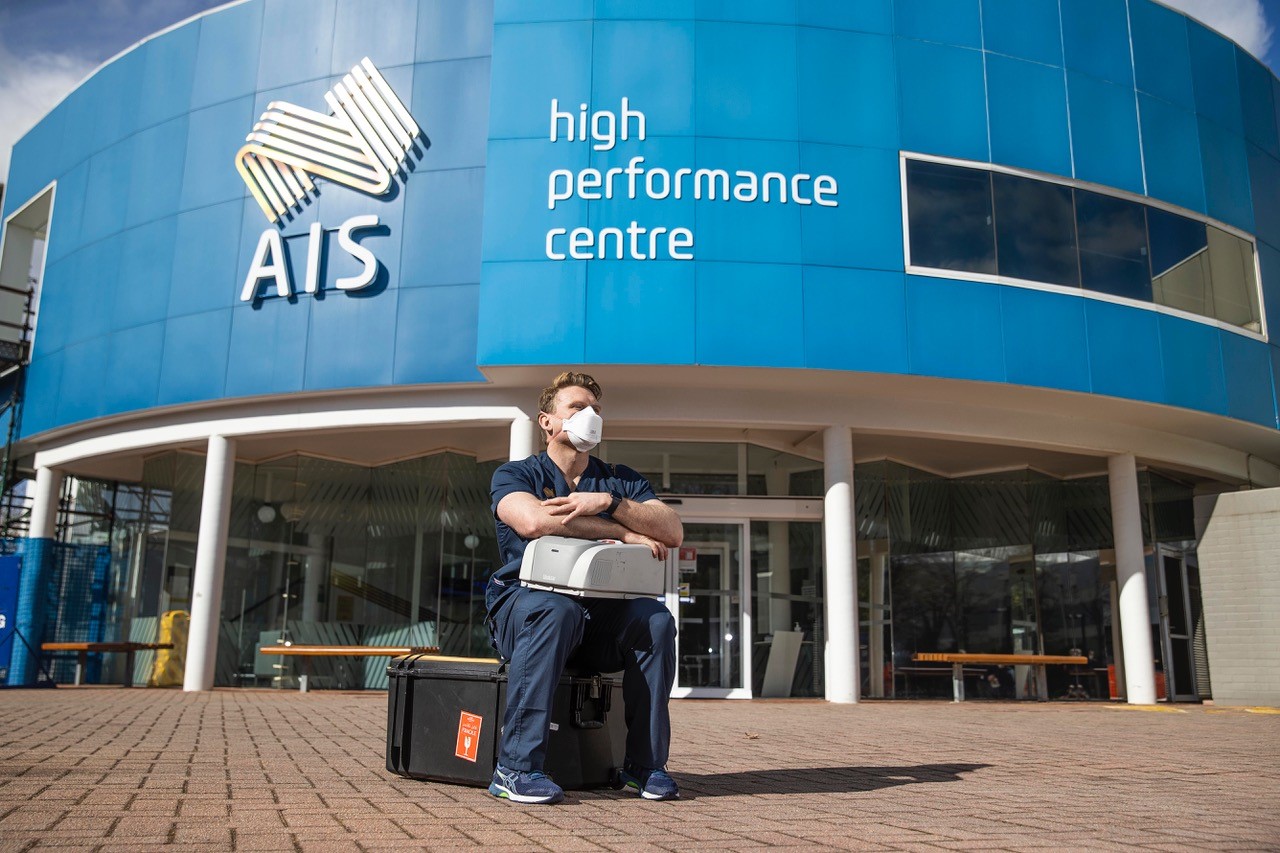25 July 2022
The Australian Institute of Sport’s early investment in a cutting-edge medical technology has helped guide Australian athletes through some of our biggest and best sporting moments during the COVID pandemic - and it’ll be behind-the-scenes in Birmingham too, supporting our Australian Commonwealth Games team.

Recognising the significant link between athlete health and performance at major sporting events, the AIS got ahead of the game in 2019 by investing in portable Point-of-Care PCR test units that have been a crucial tool in managing Australian athletes and sports through COVID.
No bigger than a shoebox, the portable BioFire units can batch-test for respiratory and gastrointestinal pathogens in about 45 minutes, essentially enabling the AIS to take rapid lab-quality testing into the field. The AIS has been on the ground manning the technology at major events such as the Tokyo Olympics and Paralympics, Beijing Winter Olympics and Paralympics and now Birmingham Commonwealth Games.
The AIS’s vast experience in the field means it was recently invited to deliver training to the National Critical Care and Trauma Response Centre, a key component of Australia’s disaster and emergency medical preparedness.
AIS Chief Medical Officer Dr David Hughes said the AIS’s proactive approach to athlete health had positioned Australian sport well to navigate a complex COVID world.
“The AIS is intent on staying at the forefront of cutting-edge technology that can keep athletes healthier and happier in their training environment, thereby providing them with a solid platform to perform,” Dr Hughes said.
“It was a fortuitous that in 2019 the AIS decided to invest and research into point-of-care PCR technology in athlete populations. For the AIS, and for the Australian high performance sport sector, this meant that when the pandemic arrived, the AIS already had the technology and capability which could then be adapted to the new and challenging environment.
“Right now, probably the AIS has the most expertise in Australia in the use of this technology in the field, as a mobile technology.”
The postponed Tokyo Olympics in 2021, where Dr Hughes was Medical Director, was the first major test in a Games setting. The Australian team remained COVID-free during the Games and finished with its equal-biggest gold medal haul.
“It is fair to say that how it panned out in Tokyo, from a health perspective, did surpass our wildest expectations,” Dr Hughes said. “Between the Olympics and Paralympics, we did over 700 tests using point of care PCR testing and we were able to ensure that every athlete got to complete their training sessions and got to compete as intended, without being restricted by COVID-19 infection or isolation. I believe we were one of the few Olympic teams - and certainly one of the few of the major larger Olympic teams - that can claim to have done that.
“We have excellent level one evidence that illness in the six months leading up to a benchmark event has a profound effect on an athlete's ability to achieve their performance goals. One of our key objectives, therefore, is to keep athletes illness free. Every training session that an athlete completes, particularly in the six months leading up to a benchmark event, is money in the bank.”

Dr Hughes points out that technology is only as good as the expertise of the personnel using it. He credits AIS PhD Scholar Dr Mat Mooney, who has been researching the management of infectious disease in elite athletes, for his pivotal role.
Dr Mooney will be monitoring the Australian Commonwealth Games team in Birmingham and has also been embedded in other major sporting events such as the Socceroos FIFA World Cup qualifying campaign, the Ashes cricket and the Australian Open tennis.
“As the pandemic was developing and evolving, it turned out to be the right project at the right time,” Dr Mooney said.
Dr Mooney said the major benefit in a Games environment was responsive risk management. With hundreds of athletes and staff to care for, at-risk members can be isolated, receive a quick and accurate diagnosis, then provided with targeted care or returned quickly to training and competition.
“There's quite a lot of work and effort that goes around performing the test accurately and safely outside of the laboratory setting. So that's where our research and additional knowledge comes through, because PCR testing is very sensitive,” Dr Mooney said.
“We've learned a lot from our previous Games experience and large major events and as the pandemic evolves and the risks associated with that also change and behaviours change, then it gives us a bit of an opportunity to stay one step ahead of the cases that potentially may crop up and our best chance to actually mitigate those.
“Communicable disease is the most frequent cause of time lost to training and competition. Anything we can do to reduce the burden of illness in the team throughout the Games is going to pay dividends from a performance perspective.”
While technology has been a game-changer, Dr Hughes also advised sports and athletes to continue taking personal precautions for their health.
“Biofire is excellent at giving us a specific diagnosis rapidly, but really, the thing that kept the [Olympic] team COVID-free was adherence to the simple things; mask wearing, distancing, hand-washing, doing, as much of your eating outdoors as you possibly can. All of those simple interventions were absolutely crucial.”
